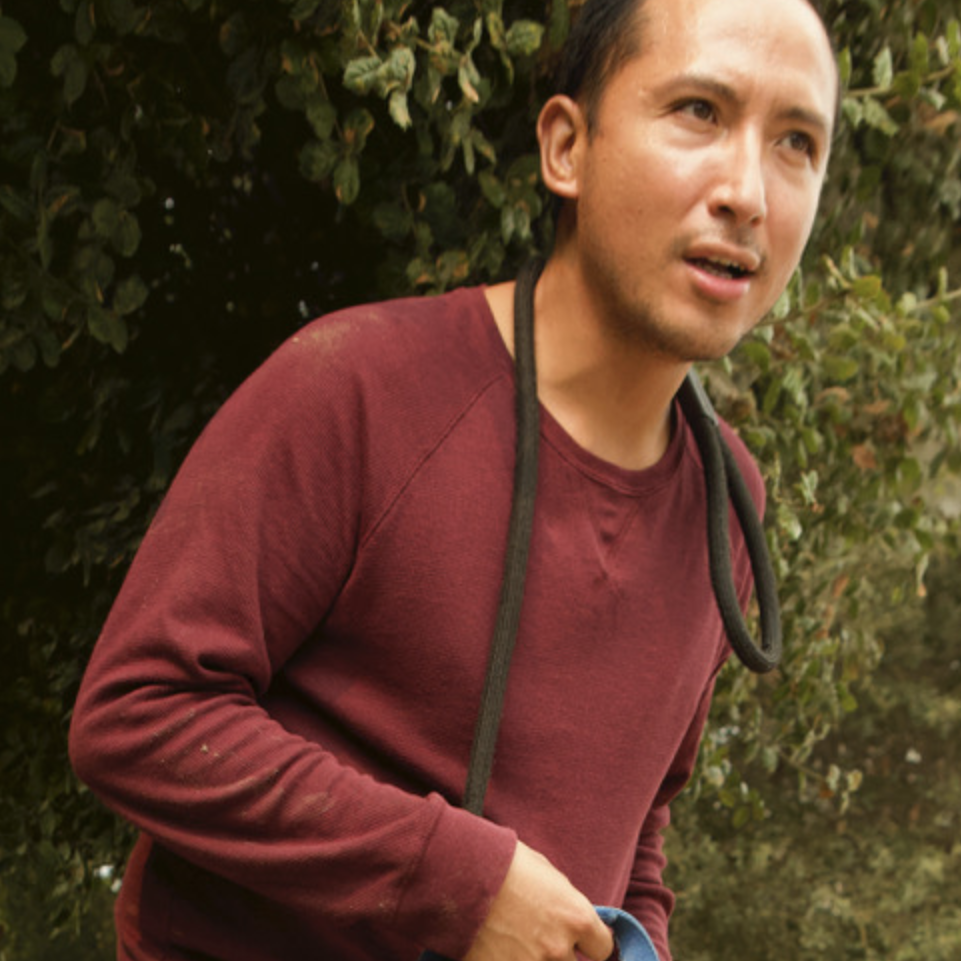“I was diagnosed as H.I.V. positive when I was twenty years old, as a result of my using. It was a very dark time for me,” Armando I. shares. The journey to that most terrible moment saw Armando move from a very insulated and privileged childhood to a life as an undocumented teen living in the immense urban jungle of Los Angeles. Born an only child in Lima, Peru to a single mother, Armando had a largely non-existent relationship with his absentee father. However, his mother, along with his maternal grandparents and uncles, provided him with a solid and loving foundation during most of his childhood. However, there was a distinct and visceral divide when it came to that support. On the one hand, Armando attended private schools and lived a rather comfortable life, replete with love and encouragement from that maternal side of his family. But as he got older he realized quickly, and his behavior demonstrated, that he was, in fact, gay. This side of him was not enveloped in love and understanding.
As he puts it, “I couldn’t be my true self. I was constantly being teased and reprimanded for my high-pitched voice and effeminate tendencies.” As an adult he developed a measure of empathy for his family’s reaction to his identity. “They couldn’t understand my gay identity but they did their best to love and support me,” he explains. Yet that treatment did alienate the young Armando and led to the repression of his authentic self. To add even more instability and trauma to his transition from young child into adolescence, his mother, now remarried to Armando’s stepfather, decided to move the family from the relative comfort of Peru to the unknown and intimidating United States of America; more specifically Los Angeles, CA. “I went from a private school to a public one and from living in a house to an apartment,” he recalls.
During this time, he also suffered physical and psychological trauma both in Peru and then in the U.S. This abuse, along with the culture shock of moving and the fact that he was raised in a very strict Pentecostal Christian household, strongly influenced the man he was to become. “It shaped my views on trust and honesty. I felt shame, fear and confusion. I just suppressed everything and tried to move on,” he recalls. The family initially came to the U.S. on a tourist visa, but once it expired, as mentioned earlier, they had to spend the next few years as undocumented immigrants. “I felt less than and unequal to my peer group. It caused me to feel a lot of anger towards my mom and furthered the rift in our relationship,” Armando painfully shares. And by the age of nineteen he had struck out on his own, working two jobs and eventually graduating high school.
Growing up Armando had never been exposed to alcohol or any type of narcotic, outside of an uncle who was an alcoholic. But once he was out of school and truly on his own he began drinking heavily and partying. This alcohol abuse quickly led to meth and the combination of the two eventually led to a lot of promiscuous behavior. “Drugs and alcohol slowly took over my life and my choices became predicated largely upon my drinking and using,” he explains. And, as alluded to earlier, Armando was diagnosed as H.I.V. positive at the tender age of twenty. The haunting voice of his deeply religious mother rang out deafeningly in his young mind. “I was very stigmatized by the diagnosis. I felt like an unworthy sinner going to hell for my choices and actions,” he says.
Over the next four years, Armando leaned heavily on the support and services provided by the Los Angeles Gay and Lesbian Center. The Center helped him find medical options for his treatment as well social services to aid him in telling his family. He was also assisted in dealing with the psychological challenges facing him as he navigated his new life as H.I.V. positive. Yet he was also still abusing meth and drinking heavily during this time. This continued dependence on drugs and alcohol not only negatively impacted his health but also led to the destruction of several educational and vocational opportunities the Center had provided for him. It all came to a head in 2011 when Armando entered his first rehab center. As a result of this initial attempt at recovery, he managed to stay sober for six months. However, “I was still resistant to the idea that I was an addict. I just thought I had a ‘problem,’” he recalls.
The next decade saw Armando repeat the vicious cycle of getting sober for a few months, relapsing, and then getting sober again. He would attend meetings and even had a loyal, supportive and steadfast sponsor. He was making progress, but he still couldn’t admit that he was an alcoholic and drug addict. “I had so many kind and generous people who tried to help me, but I just couldn’t stop,” he recollects. Finally, by 2021 Armando had reached the loneliest and darkest time in his life. Tired of hurting his family and friends and no longer able to stop abusing, “I came to the realization that I was an addict and needed the help of a residential center,” Armando explains.
Thanks to the assistance and generosity of some of those loyal and caring friends, he was able to stay alive during those bleak and trying days. Likewise, during this time, he was also able to get back to some meetings, and it was at one of those meetings he just happened to connect with Rabbi Marc Blumenthal. He also had been in contact with Jesus R., a friend, and confidante, who was currently at Beit T’Shuvah as a resident. And between Rabbi Marc’s connection to BTS and Jesus’ resounding endorsement, Armando finally called and spoke with Lysa and Nanette. And three weeks later, on August 11th, he walked through the doors at 8831 Venice Boulevard. “It was a little overwhelming at first,” he remembers. Uncomfortable around straight men, he found the environment initially unsettling from all the teasing and ridicule he had received as a child and young adult. But eventually, as he puts it, “I found a willingness to connect.” And of all things, it was the sport of basketball that finally broke down those walls of fear and self-loathing. “The guys taught me how to play, and no one made fun of me,” he joyfully remembers.
And then his treatment team of Rabbi Joseph, Leah, and Ben Gage stepped in to both challenge and encourage Armando to face his demons head-on. “They taught me that I didn’t have to feel shame for my relapses or my sexuality. That I was not my mistakes or my addictions,” Armando shares. He also found an unexpected refuge in Shabbat services. “For someone who is not very religious, I have found a spiritual community that accepts and loves all of me,” he relates with that kind and tender enthusiasm he is so known for in and around BTS. A team captain/intern for the marathon team, a member of the gardening group, and an intern in the kitchen, Armando has ensconced himself into the very fabric of life at Beit T’Shuvah. Having never met a stranger and always willing to provide a helping hand or a loving word of encouragement to anyone who may need it, this rabid Christina Aguilera and puppy therapy fan lights up any room he enters and endears himself to all who may come in contact with him. We’re glad you finally made that call, Armando. Beit T’Shuvah would not be the same without you.

